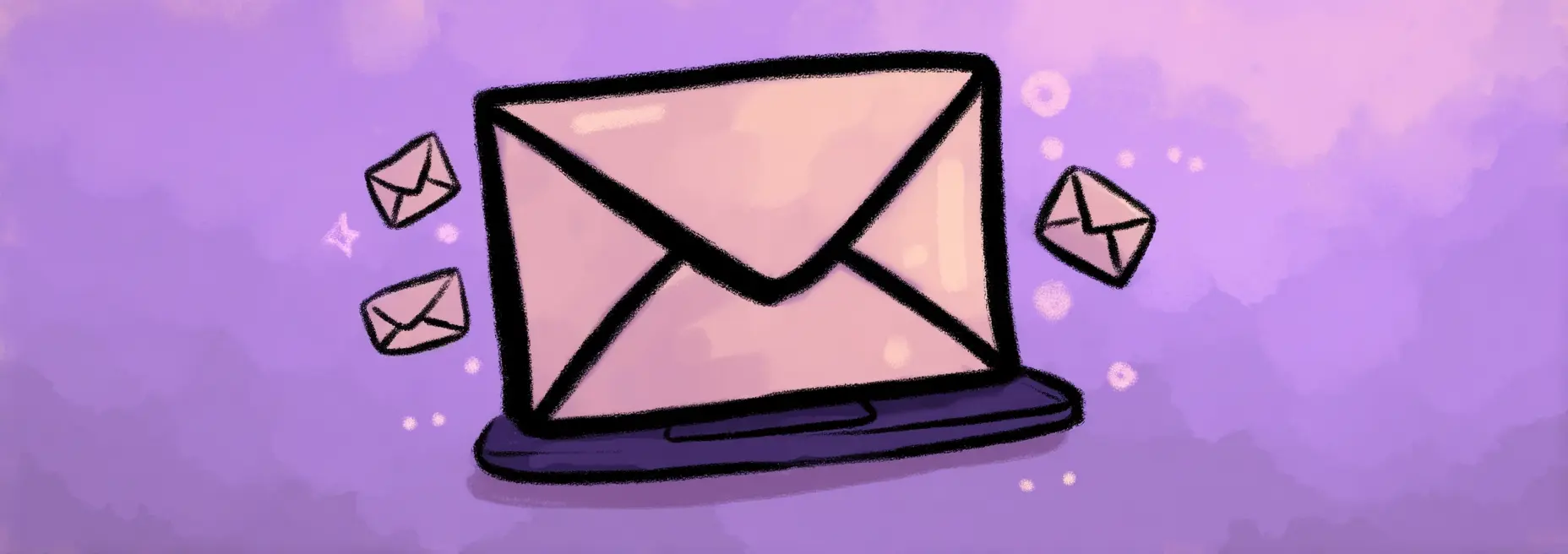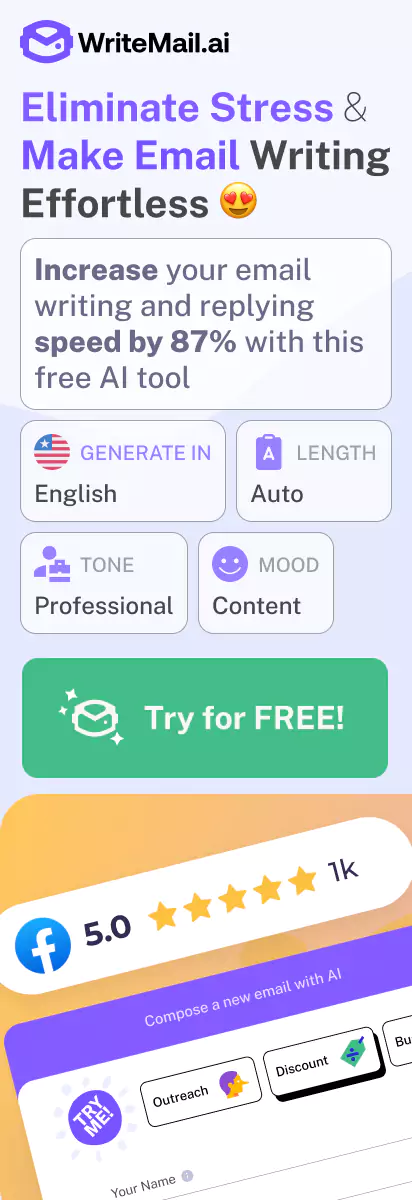Asking for more money is uncomfortable. Trust me, I’ve been there—staring at a blank email, trying to find the right words to request the salary I knew I deserved without sounding demanding or desperate. You’re not alone in this struggle.
According to a PayScale survey, only 37% of workers have ever asked for a raise in their current job, yet 70% of those who asked received some kind of increase. That’s money left on the table simply because people don’t know how to approach the conversation.
I’ve helped hundreds of professionals craft salary negotiation emails that actually get responses—and results. In this article, you’ll discover exactly how to structure your message to maximize your chances of success, with real examples that have worked for people just like you.
You’ll learn the psychological triggers that make hiring managers and supervisors more receptive to your request, the precise language that communicates your value without seeming entitled, and the timing factors that can make or break your negotiation before it even begins.
Whether you’re responding to a job offer that came in lower than expected, preparing for your annual review, or simply believe your compensation should match your contributions, these templates will give you the framework and confidence to press send on that email.
Let’s start with the fundamental elements every successful salary negotiation email must include, then move to the templates that have helped my clients secure an average 28% increase in their compensation packages.
Timing is Everything: When to Send Your Salary Negotiation Email
When it comes to salary negotiation, timing isn’t just important—it’s practically everything. I’ve seen many promising negotiations fall flat simply because they were initiated at the wrong moment. Let me guide you through the optimal timing for your salary negotiation email to maximize your chances of success.
Optimal negotiation windows
The golden rule of salary negotiation timing is to send your email after receiving an offer but before formal acceptance. This critical window gives you leverage while the employer is invested in bringing you on board, but before you’ve surrendered your negotiating power.
When you receive an offer, you might feel pressured to respond immediately—don’t. This narrow window between offer and acceptance is your greatest opportunity to improve your compensation package. Once you’ve formally accepted a position, your leverage diminishes significantly.
Strategic timing considerations
I always recommend waiting 24-48 hours after receiving an offer before sending your negotiation email. This deliberate pause serves multiple purposes:
- It demonstrates that you’re giving the offer thoughtful consideration rather than making impulsive demands
- It provides you time to research comparable salaries and build a compelling case
- It shows professional confidence and signals that you value yourself appropriately
- It gives the hiring manager time to prepare for a negotiation conversation mentally
This brief waiting period strikes the perfect balance between showing interest and demonstrating that you’re a professional who carefully evaluates important decisions.
The importance of mid-week communications
Research consistently shows that emails sent Tuesday through Thursday receive more favorable responses than those sent on Mondays or Fridays. This isn’t coincidental. Consider your work rhythms—Mondays are often chaotic as people catch up from the weekend, while Fridays find many looking ahead to time off.
When you send your negotiation email mid-week, you’re more likely to reach your recipient when they’re:
- Fully settled into their work week
- Not distracted by weekend transitions
- More likely to give your request the attention it deserves
- In a more analytical, rather than transitional mindset
If possible, I recommend sending your email between 10 AM and 2 PM when decision-makers are typically most alert and engaged with their work.
Well-Timed Follow-Up Email Example
Notice how this example follows the 24-48 hour rule by referencing “our conversation on Tuesday” and specifically requests a follow-up on Wednesday or Thursday (mid-week). The candidate has taken time to research comparable salaries and presents their counteroffer thoughtfully rather than reactively.
Respecting response windows
After sending your negotiation email, give the employer appropriate time to respond. In my experience, most hiring managers will get back to you within 2-3 business days. If you haven’t heard back after that timeframe, a polite follow-up is appropriate.
Remember that your timing strategy extends beyond just the initial negotiation email. The entire process—from receiving the offer to accepting the final terms—should follow a deliberate rhythm that demonstrates professionalism while maintaining momentum.
By strategically timing your salary negotiation email, you’ll not only set the stage for a successful discussion but also demonstrate the kind of thoughtful communication skills that employers value. In the next section, I’ll show you exactly how to structure your negotiation email for maximum impact.
Crafting the Perfect Salary Negotiation Email Structure
When you’re ready to negotiate your salary, how you structure your email can make or break your success. Think of your negotiation email as a carefully choreographed dance—each move needs to flow naturally into the next while making a compelling case for your value. Let me walk you through the essential components that will help you craft an email that gets results.
Essential Components of Your Negotiation Email
Every effective salary negotiation email contains four key elements that work together to create a persuasive, professional request:
- Opening appreciation: Start by expressing genuine gratitude for the offer and enthusiasm about the opportunity
- Value proposition: Clearly articulate why you deserve higher compensation by highlighting your unique skills and contributions
- Specific request: State your desired salary with precision, backing it up with research and rationale
- Collaborative closing: End with language that emphasizes partnership and signals your willingness to find a mutually beneficial solution
I’ve found that many professionals rush to make their request without properly setting the stage. Remember, the goal isn’t just to ask for more money—it’s to create a compelling narrative that makes your request feel both reasonable and justified.
The Psychology of Order: Start with Gratitude
The sequence in which you present your points matters tremendously. According to a Harvard Business Review study, starting with genuine appreciation increases negotiation success rates by approximately 30%. When you begin with gratitude, you activate the reciprocity principle—a powerful psychological trigger that makes the recipient more likely to respond favorably to your subsequent request.
I recommend that you always open with sincere thanks before transitioning to your request. This approach sets a positive tone and demonstrates that you value the relationship beyond just the financial aspects of the offer.
Starting with genuine appreciation isn’t just polite—it’s strategically sound. When you acknowledge the time and effort that went into extending you an offer, you create goodwill that carries through the entire negotiation process.
Example of a Complete Salary Negotiation Email
Formatting Considerations for Maximum Impact
How your email looks matters almost as much as what it says. When you’re crafting your negotiation email, pay close attention to these formatting elements:
- Concise paragraphs: Keep each paragraph focused on a single point, ideally 2-4 sentences long
- Strategic white space: Use breaks between paragraphs to create breathing room and emphasize key points
- Bullet points: When listing multiple accomplishments or qualifications, bullets make them easy to scan and digest
- Emphasis: Use minimal formatting (like italics) to highlight truly important figures or points—but don’t overdo it
Your goal is to make your email easily digestible. The hiring manager or your supervisor may be reviewing your request between meetings or alongside dozens of other emails. Clear formatting ensures your key points stand out even during a quick scan.
Using AI Tools to Perfect Your Structure
If you’re struggling to get the structure just right, WriteMail.ai can help you generate a properly formatted negotiation email while preserving your authentic voice. The tool is particularly helpful for ensuring you maintain the right balance of appreciation, evidence, and specific requests in your email.
When you use an AI writing assistant, I still recommend that you personalize the output with specific details about your accomplishments and research. The structure provides the framework, but your unique value proposition is what will ultimately make your case compelling.
Adapting Your Structure to Different Scenarios
While the core components remain consistent, you might need to adjust your email structure based on your specific situation:
- Internal promotion: Place greater emphasis on your institutional knowledge and proven track record within the company
- External offer: Focus more on how your expertise aligns with specific company challenges and opportunities
- Counter-counter offer: Acknowledge the previous response before making your case for further adjustment
The structure of your negotiation email creates a psychological journey for the reader, from appreciation to understanding your value to considering your specific request. When you carefully craft each element, you dramatically increase your chances of receiving a positive response and securing the compensation you deserve.
Remember, a well-structured email doesn’t just help you get more money—it does so while preserving and even strengthening your professional relationship with your employer. That’s the true art of successful salary negotiation.
Making Your Case: Research and Value Demonstration
When you’re negotiating your salary via email, simply asking for more money isn’t enough. You need to build a compelling case that justifies your request. I’ve found that the most successful negotiators back their requests with solid research and concrete evidence of their value. Let’s explore how you can strengthen your position with data and achievements.
Salary Research Strategies
Before you hit send on that negotiation email, you’ll want to arm yourself with market data that supports your salary request. Here’s how you can gather this crucial information:
- Industry salary platforms: Utilize resources like Glassdoor, PayScale, and Robert Half to research average salaries for your position in your geographic area. When you reference these in your email, you demonstrate that your request is grounded in market reality, not just personal desire.
- Professional associations: Many industry associations conduct annual salary surveys that provide detailed compensation data specific to your field. These reports often carry more weight than general salary websites because they’re industry-specific.
- Network intelligence: Discretely connect with colleagues in similar roles at other companies to gauge compensation ranges. While you shouldn’t name these individuals in your email, you can reference “industry peers” as one of your research sources.
When citing your research in your negotiation email, be specific but concise. For example, instead of saying “I know salaries are higher elsewhere,” try: “According to the 2023 Robert Half Technology Salary Guide, the median salary for this position in our region is $95,000-$105,000.”
Quantifying Your Contributions: The STAR Method
Your research establishes market value, but your personal contributions establish your value. I recommend adapting the STAR method (Situation, Task, Action, Result) to clearly articulate your impact:
- Situation: Briefly describe the business challenge or opportunity
- Task: Explain your specific responsibilities in addressing it
- Action: Detail the steps you took
- Result: Most importantly, quantify the positive outcome
The key is transforming your achievements into financial terms whenever possible. Did you increase revenue? Reduce costs? Improve efficiency? Save time? These metrics speak the universal language of business value.
Example of Value Demonstration in Action
Notice how the example above doesn’t just ask for more money—it justifies the request with both market research and specific, quantified achievements that demonstrate clear value to the organization.
The Power of Specificity
When you’re making your case, precision matters. A Carnegie Mellon study found that mentioning exact figures and percentages increases negotiation success by approximately 25%. This specificity signals that you’ve done your homework and helps the hiring manager justify your request to others in the organization.
I recommend you use:
- Precise salary figures: Request “$94,500” rather than “around $95K” or “a higher salary”
- Exact percentages: “I increased department efficiency by 32%” is more compelling than “I significantly improved efficiency”
- Concrete timeframes: “I completed the project two weeks ahead of schedule” versus “I finished early”
- Dollar values: Whenever possible, translate your achievements into revenue generated or costs saved
This level of detail not only strengthens your case but also demonstrates your analytical approach and attention to detail—qualities most employers value highly.
Balancing Achievements with Potential
While your past achievements provide evidence of your capabilities, you should also address your future value. After highlighting what you’ve accomplished, briefly outline how these skills and experiences will translate to success in the new role.
“My experience reducing customer acquisition costs by 28% at Company X positions me to immediately optimize your digital marketing spend, which you mentioned is a key priority for Q3.”
By connecting your past achievements to the company’s future goals, you’re not just negotiating for compensation based on what you’ve done, but investing in what you will do. This forward-looking perspective can be particularly persuasive in salary discussions.
Remember, your goal in the research and value demonstration portion of your negotiation email is to make it easy for the hiring manager to say yes. When you provide solid market data combined with specific evidence of your value, you create a compelling, fact-based case that’s difficult to dismiss.
Language and Tone: Words That Win in Negotiation Emails
The language you choose in your salary negotiation email can make or break your success. Even with perfect timing and solid research, using the wrong words or tone can undermine your position before negotiations even begin. I’ve seen countless professionals sabotage their efforts with language that’s either too passive or overly aggressive—finding the right balance is crucial.
Confidence vs. arrogance: Psychological impact of assertive yet collaborative language
When you’re drafting your negotiation email, striking the balance between confidence and collaboration is essential. Research from the Harvard Business School shows that negotiators who present themselves as both assertive and willing to collaborate achieve up to 26% better outcomes than those who are either too aggressive or too accommodating.
The psychological impact of your language choices runs deep. When you use assertive language, you signal that you value yourself and your contributions, but when that crosses into arrogance, you risk triggering defensiveness from the hiring manager. Instead, aim for what negotiation experts call “confident humility”—demonstrating your worth while acknowledging the collaborative nature of the process.
How to sound confidently collaborative:
- Replace “I demand” with “I’m requesting.”
- Instead of “You need to offer,” use “I’m hoping we can find”
- Rather than “This offer is too low,” try “Based on my research, I was expecting”
Power phrases that demonstrate value without undermining your position
Certain phrases have proven particularly effective in salary negotiations because they simultaneously demonstrate your value while keeping the conversation collaborative. Think of these as your linguistic power tools—phrases that subtly shift the dynamic in your favor.
Effective power phrases to include:
- “Based on my research” – Signals that your request is founded on objective data, not merely personal desire
- “I’ve consistently delivered results, such as…” – Connects your compensation directly to your proven value
- “I’m enthusiastic about contributing to [company goal]” – Reinforces your commitment to their objectives
- “I believe a salary of [X] would reflect the value I bring” – Frames the request as fair recognition rather than a demand
- “I’m flexible on [benefit] if we can reach agreement on [priority]” – Demonstrates reasonableness and prioritization
When you incorporate these phrases naturally into your negotiation email, you’re more likely to be perceived as reasonable and value-focused rather than simply money-motivated.
Example demonstrating effective negotiation language:
Note how this example uses confident but collaborative language. The bold phrases demonstrate assertion without aggression, keeping the tone positive while clearly stating the candidate’s value and request.
Avoiding undermining phrases: Words and expressions that weaken your position
Just as important as knowing what to say is understanding what not to say. Certain phrases and words can subtly undermine your position, making you appear insecure or desperate. When you’re negotiating salary, these linguistic pitfalls can cost you thousands of dollars.
Phrases to avoid in your negotiation emails:
- “I’m sorry to ask, but…” – Apologizing frames your request as an imposition rather than a standard business discussion
- “I know the budget is tight…” – Don’t make assumptions about constraints that may not exist
- “I was hoping/just wondering if…” – These tentative phrases signal uncertainty and lack of conviction
- “I need/I want” – Focus on value and market rates rather than personal needs or desires
- “To be honest/frankly” – These phrases can inadvertently suggest that you might not be honest otherwise
- “This might sound greedy, but…” – Never characterize your legitimate market-value request as greed
I recommend scanning your draft negotiation email specifically for these undermining phrases and replacing them with more confident alternatives. Your language should reflect someone who knows their worth and is engaged in a standard professional discussion—not someone asking for a favor.
How WriteMail.ai’s tone adjustment features can help fine-tune your negotiation language
Finding the perfect balance in negotiation language can be challenging, especially when you’re already managing the stress of the negotiation itself. WriteMail.ai offers tone adjustment features specifically designed to help you fine-tune your negotiation emails for optimal assertiveness.
When you’re crafting your negotiation email, the tool can analyze your draft and suggest adjustments that strengthen weak language or soften overly aggressive tones. This balanced approach helps you present yourself as confident and value-focused while maintaining a collaborative spirit.
Beyond simple word choice, the tone of your entire message matters significantly. Research shows that emails with a positive but firm tone receive 31% more favorable responses in negotiation scenarios than those that are either negative or overly accommodating. The right tools can help you achieve this delicate balance even if negotiation language doesn’t come naturally to you.
Remember, the words you choose in your salary negotiation email don’t just communicate your request—they reveal how you value yourself professionally. By carefully crafting your language to project confident collaboration rather than either desperation or arrogance, you substantially increase your chances of a successful negotiation outcome.
Beyond Base Salary: Negotiating the Complete Package
When you’re deep in salary negotiations, it’s easy to fixate on that single number. But I want you to think bigger. Your compensation package is much more than just your base salary—it’s a multi-faceted opportunity to improve your overall work experience and financial well-being.
Expanded Negotiation Targets
Looking beyond your base pay opens up a world of valuable benefits that might actually improve your work-life more than a few extra thousand dollars. Here’s what you should consider adding to your negotiation list:
- Health benefits: Enhanced health insurance coverage, dental plans, or wellness program subsidies
- Retirement contributions: Higher employer match percentages or accelerated vesting schedules
- Flexible work arrangements: Remote work days, flexible hours, or compressed workweeks
- Professional development: Conference budgets, education stipends, or dedicated learning time
- Time off: Additional vacation days, personal days, or sabbatical opportunities
- Relocation assistance: Moving expenses, temporary housing, or home-finding trips
When you negotiate these additional elements, you’re not just improving your immediate situation—you’re setting yourself up for long-term growth and satisfaction.
The Cascading Request Strategy
I recommend using what I call the “cascading request strategy” when negotiating your complete package. Here’s how you can implement this approach:
- Start with salary: Lead with your base salary request, supported by your research and value proposition
- Transition to high-value benefits: If there’s resistance to your salary request, move to benefits with significant monetary value (like bonuses or equity)
- Explore flexible arrangements: Discuss work-life balance elements that cost the employer little but provide you substantial value
- Conclude with growth opportunities: Negotiate professional development benefits that demonstrate your commitment to long-term success
This cascading approach gives your employer multiple ways to say “yes” to something, even if they can’t meet your initial salary request. It also demonstrates that you’re thinking holistically about the role and your contributions.
Complete Package Negotiation Example
Creating a Prioritized “Negotiation Map”
Before you hit send on your negotiation email, I strongly suggest creating what I call a “negotiation map.” This is a prioritized list of what matters most to you, which will guide your decision-making as the negotiation unfolds.
Here’s how you can create your own negotiation map:
- Tier 1 (Must-haves): Identify 2-3 elements you absolutely need to accept the position
- Tier 2 (Strong wants): List 3-4 items that would significantly improve the offer
- Tier 3 (Nice-to-haves): Include several smaller items you’d appreciate but could compromise on
- Trade-offs: Identify what you’re willing to give up in exchange for getting higher-tier items
Your negotiation map becomes your personal guide through what can sometimes be a complex back-and-forth process. When you receive counteroffers, you’ll have clarity on what truly matters to you versus where you can be flexible.
Using AI Assistance for Complete Package Negotiations
When you’re trying to balance multiple negotiation elements simultaneously, it can be challenging to find the right language that addresses everything without overwhelming the recipient. WriteMail.ai can help generate alternate compensation package suggestions based on industry standards, ensuring your multi-faceted request remains professional and well-structured.
The key advantage here is maintaining a cohesive narrative throughout your negotiation. Each element should connect to your overall value proposition, rather than appearing as a disconnected list of demands.
Remember, when you approach negotiations as a collaborative process to find the optimal complete package, you position yourself as a thoughtful professional who understands business realities—exactly the impression you want to make as you begin your new role.
Response Handling: Following Up and Closing the Deal
Even after you’ve sent a well-crafted salary negotiation email, your work isn’t quite done. The way you handle responses (or lack thereof) can significantly impact the final outcome. Let me walk you through the essential strategies for following up effectively and bringing your negotiation to a successful conclusion.
Setting Proper Response Expectations
Once your negotiation email is sent, patience becomes your ally. I’ve found that understanding typical response timelines helps manage anxiety during this waiting period.
Recommended follow-up timelines:
- Wait 3-5 business days before sending your first follow-up
- If you’ve had previous communication that was more rapid, you might adjust this timeline accordingly
- Consider the organization’s size – larger companies typically have longer decision processes
- If you’re approaching a deadline they’ve set, it’s appropriate to follow up sooner
When you do follow up, keep your message brief, professional, and focused on moving the conversation forward rather than expressing impatience. A simple check-in that reaffirms your interest in the position while politely requesting an update is all you need.
When an employer responds to your negotiation email, they’ll likely present one of three scenarios: acceptance, a counteroffer, or a firm stance on their original offer. The counteroffer scenario requires the most strategic handling.
Framework for evaluating counteroffers:
- Compare the counteroffer to your research on market rates
- Assess the complete package, not just the base salary figure
- Consider the non-monetary aspects (growth potential, work environment, etc.)
- Determine if this represents the employer’s best offer or if there’s room for another round
- Identify if there are alternative benefits that could compensate for a lower-than-desired salary
If you decide to continue negotiating after receiving a counteroffer, I recommend responding with appreciation for their consideration while clearly articulating your position. When you’ve reached a satisfactory agreement, confirm all details in writing immediately.
Example of a successful negotiation acceptance email:
Documenting Your Agreement
The importance of written confirmation cannot be overstated. After verbal agreements are made, always follow up with an email that outlines the specific terms you’ve agreed upon.
Key elements to document:
- Base salary amount
- Bonus structure and eligibility
- Benefits package specifics
- Flexible work arrangements
- Professional development allowances
- Performance review timelines
- Any special arrangements or promises made during negotiation
This documentation serves two purposes: it prevents misunderstandings when you start the position and provides a reference point for future performance reviews and subsequent negotiations.
Preserving Professional Relationships
A common fear I hear from professionals is that negotiating might damage their relationship with a new employer. However, research from the Society for Human Resource Management (SHRM) indicates that 86% of employers don’t rescind offers due to negotiation when it’s handled professionally.
The key to maintaining positive relationships throughout negotiation is your approach. When you frame negotiation as a collaborative process rather than an adversarial one, you set the stage for a positive, long-term working relationship.
Relationship-preserving negotiation tactics:
- Express genuine appreciation throughout the process
- Focus discussions on mutual benefit and value creation
- Maintain a professional, respectful tone even if negotiations become challenging
- Accept the final outcome graciously, whether it fully meets your expectations or not
- Thank everyone involved in the process personally
Remember, the people you’re negotiating with today may become your colleagues, managers, and professional network tomorrow. The impression you leave during salary negotiation can influence your reputation long after the negotiation concludes.
“How you handle salary negotiation often sets the tone for your future relationship with an employer. A professional approach demonstrates your business acumen and communication skills—qualities valued in virtually every workplace.”
When you successfully close a negotiation, take time to reflect on the process. What worked well? What would you do differently next time? Each negotiation experience builds your skills for future career advancement opportunities.
By approaching the follow-up and closing phases of negotiation with the same care you put into crafting your initial request, you’ll maximize your chances of not just securing better compensation but also starting your new role on the right foot.
Taking Control of Your Career: The Power of Effective Salary Negotiation
Throughout this article, we’ve explored how a well-crafted salary negotiation email can fundamentally change the trajectory of your career and financial future. Remember that failing to negotiate could cost you over $500,000 across your career lifetime—a sobering thought that should motivate you to put these strategies into action.
When you’re preparing to negotiate your next compensation package, I encourage you to follow the structured approach we’ve outlined. Start by timing your communication strategically, craft your email with a clear appreciation-value-request framework, and always back your case with solid research and quantifiable achievements.
The language you choose matters tremendously. I’ve found that professionals who use confident yet collaborative phrasing receive better responses than those who either undermine themselves or come across as demanding. When you write your negotiation email, take time to review it specifically for tone—this small step can dramatically improve your results.
Don’t forget to look beyond base salary. When you broaden your negotiation to include benefits, professional development, and flexible work arrangements, you create multiple paths to a satisfying outcome. This approach gives both you and your employer more room to reach an agreement that truly works for everyone.
- Always document the final agreement in writing
- Respond promptly but thoughtfully to counteroffers
- Maintain professionalism throughout the entire process
- Remember that well-handled negotiations rarely result in rescinded offers
If you find yourself struggling with the writing process, tools like WriteMail.ai can help you generate well-structured negotiation emails while maintaining your authentic voice, particularly helpful when the stakes feel high and the right words seem elusive.
My final tip? Practice your negotiation email with someone you trust before sending it. Having a second set of eyes review your communication can help identify areas where your message could be stronger or clearer—this simple step has helped countless professionals secure better compensation packages.
You now have the knowledge and tools to approach salary negotiations with confidence. Take what you’ve learned here, adapt it to your unique situation, and advocate effectively for your worth. Your future self will thank you for the courage you show today in pursuing the compensation you truly deserve.









